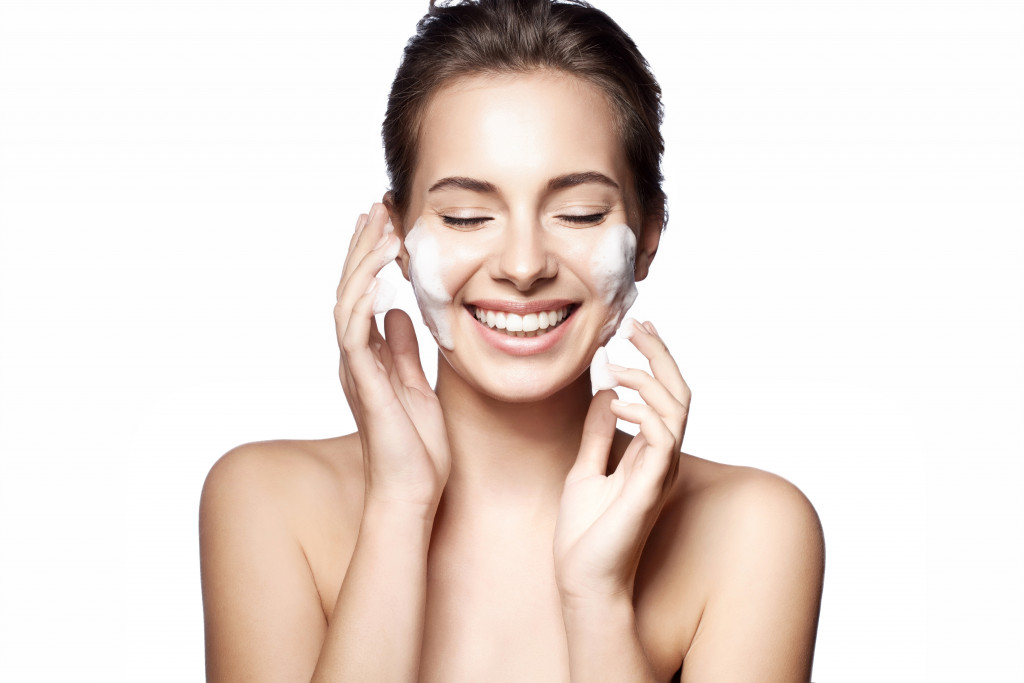Skin type can be categorized as dry, normal, combination, and oily. If you have a dull and rough complexion, visible red patches, and seemingly invisible pores, you could be leaning towards the drier side. Don’t worry, with a solid skincare routine, a well-rounded diet, and a lot of patience, you can boost your skin’s hydration levels.
What Causes Dry Skin?
Dry, rough, and flaky skin can be caused by a variety of reasons, including but not limited to:
- Genetics
- Hormonal changes
- Old age
- Weather changes
- Hot showers and baths
- Ultra violet radiation
- Harsh products
- A skin condition like eczema
6 Steps to Keep Your Skin Hydrated
If you’re not sure what’s causing your dry skin, it’s always best to consult an expert. In the meantime, here are easy steps to restore your skin’s moisture:
Moisturize
Moisturizers can help relieve dry skin. Invest in quality products containing hydrating ingredients like ceramides, squalene, and petroleum. A word of caution: the skin under your eye is thinner and more sensitive. Applying moisturizing creams might aggravate the area. You can buy eye cream online to prevent irritation.
Beyond creams, you can also explore other moisturizing products like toners, essence, and face masks. Just steer clear from alcohol-based brands that can be quite drying to the skin. Instead, opt for those containing aloe vera, oat extract, hyaluronic acid, green tea, and vitamins A, E, and C.
Ditch Harsh Cleansing Products
Some cleansers can do your skin more harm than good. Thes can contain harsh chemicals that strip your skin of its natural oils. Opt for gentle cleansers that can effectively remove makeup, dirt, and oils without leaving your skin feeling tight and dry. It’s also recommended to apply moisturizer right after this step to replace any lost hydration.

Use Hydrating Skincare Ingredients
Humectants, emollients, and occlusives will be your best friends in your journey to achieving hydrated skin. Here’s how they work:
- Humectants: helps draw moisture into the outer layer of the skin. Some examples include hyaluronic acid and glycerin.
- Emollients: are occlusive agents that help relieve dryness and flakiness, leaving the skin soft and smooth. Squalane, ceramides, and fatty acids belong in this category.
- Occlusives: are hydrating agents that work by locking moisture into the skin. This includes petroleum, beeswax, plant butter, and mineral oil.
Avoid Over Exfoliating
Exfoliating, when done right, can help unclog pores and remove dead skin cells, leaving your skin smooth and acne-free. Too much, however, can mess up your skin barrier and lead to dryness and irritation. Limit this step to at least once or twice a week. It’s also best to stick with chemical exfoliants like glycolic and lactic acid.
Take Supplements
Having hydrated skin isn’t limited to using skincare products. In fact, there are different kinds of supplements that can replenish your skin’s moisture levels. Some examples include ceramides and phytoceramides which help retain moisture by creating a protective barrier around the skin. Be sure to consult a doctor before taking any form of supplement.
Don’t Forget Sunscreen!
For the love of all things skincare, please don’t forget to wear sunscreen! Ultraviolet rays can damage the skin barrier, resulting in dry and irritated skin. More than that, it can also protect you from developing skin cancer, wrinkles, and sunspots. Aim for SPF30 or higher.
Quench Your Skin’s Thirst!
Remember, every person’s skin is different. A product that works well for another might not be as effective for you, so think twice before you copy a famous celebrity’s skincare regimen. Most of the time, it takes some trial and error to find a routine that can help increase your skin’s moisture levels.
When in doubt, consult a dermatologist who can help create a regimen that would work well for your skin type. This is especially true if your skin’s dryness is caused by underlying conditions like eczema and psoriasis. They provide expert advice on what products to use and avoid.
The path to healthy-looking skin isn’t always an easy one. But with a solid skincare routine, a few lifestyle changes, and advice from an expert, you’re well on your way to achieving the skin of your dreams.

